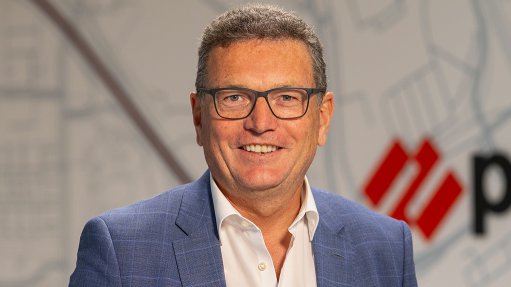Transport sector aims to secure 200 km stretch of N3 to protect freight, logistics operators
Companies and industry bodies in the freight and transport logistics industries, and communities and organisations along the 200 km stretch of the N3 highway from Howick to Harrismith, are developing a pilot project to secure that portion of the highway.
The pilot project was aimed at testing the concept of using private and public security to provide robust physical security on the strategic stretch of road, said business lobby nonprofit Sakeliga Security Projects head Gideon Joubert.
South Africa's highways were critical trade routes that carried the goods that were the lifeblood of the economy. Highway crime was an escalating problem that posed an acute threat to ensuring a conducive economic environment, he said.
The aim of the project was to use integrated local, private and State security resources, with an added intelligence component, to secure that part of the N3 in the public interest, he said during the Safety and Security in Transport and Logistics conference hosted by industry organisation the Chartered Institute of Logistics and Transport of South Africa (CILTSA) on May 22.
Crime affected people across socioeconomic, cultural and geographic spheres and industries. Road freight had been hard hit by crime in the country. The project explored what an alternative security structure could look like and aimed to build an alternative to where State structures had eroded, he highlighted.
"We cannot solely rely on the State, and firms, communities and organisations must invest in necessary alternative structures to fill the vacuum in State policing," he said.
More than 80% of land freight in South Africa was transported by road and was vulnerable to truck attacks, looting and hijackings. Losses to companies were significant, but, to the greater economy, it was more about lost opportunities and deterred investments, added Joubert.
Violent crime in the freight and logistics industries represented a significant threat and impacted on forward and backward linkages, he said.
Further, the initiative partners think that the project must have elements essential for a sustainable solution, including that it be cost-effective, efficient, in the public interest and resistant to corruption, as well as insulated from degraded or nonfunctioning public infrastructure.
"The first aim is to protect lives, and then to protect freight and equipment, and keeping the highway open and free of criminal elements."
Additionally, the project must be manageable, of a realistic scale and allow for upscaling in the future.
The objective was to deny criminal groups access to the area and maintain high rates of crime interventions. To be successful the security officers must be employed full-time and be dedicated to the specific tasks, and be robust, capable and professional in their duties, he noted.
Further, there must be a post-incident management process, whether it was a truck hijacking or looting, to ensure improvement.
Similarly, it was important to measure and track the impact of the whole project, Joubert said. "Measuring the success and impact of the project is vital."
Additionally, the service provider must be a partner in the initiative and must share the vision and mission, and be committed to deliver the intended results, he added.
The initiative must also be managed in real-time and must effectively coordinate with law enforcement. To be successful, the project must also have effective, reliable and actionable intelligence.
The initiative would also require a dedicated, full-time team to manage it, as well as a competent legal team to advise on legal and regulatory matters, he said.
Meanwhile, some of the potential pitfalls and challenges of the project include an overreliance on high-technology solutions.
"Technology is useful and integrating technology into these types of initiatives can make or break their success, but an overreliance on technology can prevent investments in physical asset protection resources for work on the ground.
"There must be a physical response, with appropriate resources and people dedicated to the task, to a trigger provided by technology solutions," Joubert said.
Another potential pitfall, and a valid concern for partners, is that of free carry over this stretch of highway for companies that are not contributing to the project.
Economic infrastructure is not built for individuals and securing it will mean that the funders of the project will probably not be primary, nor the only beneficiaries, he noted.
"However, when viewed in terms of a broader strategy of denying criminals the ability to operate near common economic infrastructure, then the funders will benefit anyway," he said.
Article Enquiry
Email Article
Save Article
Feedback
To advertise email advertising@creamermedia.co.za or click here
Press Office
Announcements
What's On
Subscribe to improve your user experience...
Option 1 (equivalent of R125 a month):
Receive a weekly copy of Creamer Media's Engineering News & Mining Weekly magazine
(print copy for those in South Africa and e-magazine for those outside of South Africa)
Receive daily email newsletters
Access to full search results
Access archive of magazine back copies
Access to Projects in Progress
Access to ONE Research Report of your choice in PDF format
Option 2 (equivalent of R375 a month):
All benefits from Option 1
PLUS
Access to Creamer Media's Research Channel Africa for ALL Research Reports, in PDF format, on various industrial and mining sectors
including Electricity; Water; Energy Transition; Hydrogen; Roads, Rail and Ports; Coal; Gold; Platinum; Battery Metals; etc.
Already a subscriber?
Forgotten your password?
Receive weekly copy of Creamer Media's Engineering News & Mining Weekly magazine (print copy for those in South Africa and e-magazine for those outside of South Africa)
➕
Recieve daily email newsletters
➕
Access to full search results
➕
Access archive of magazine back copies
➕
Access to Projects in Progress
➕
Access to ONE Research Report of your choice in PDF format
RESEARCH CHANNEL AFRICA
R4500 (equivalent of R375 a month)
SUBSCRIBEAll benefits from Option 1
➕
Access to Creamer Media's Research Channel Africa for ALL Research Reports on various industrial and mining sectors, in PDF format, including on:
Electricity
➕
Water
➕
Energy Transition
➕
Hydrogen
➕
Roads, Rail and Ports
➕
Coal
➕
Gold
➕
Platinum
➕
Battery Metals
➕
etc.
Receive all benefits from Option 1 or Option 2 delivered to numerous people at your company
➕
Multiple User names and Passwords for simultaneous log-ins
➕
Intranet integration access to all in your organisation

















